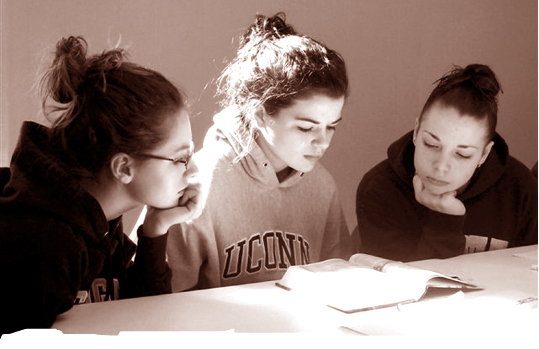Five techniques to improve reading and studying skills
SQ3R: Survey, Question, Read, Recite, Review
Reading a chapter correctly takes a lot more time than you probably
spend now, but try this SQ3R method for just once. Be patient and give
this method 2 weeks to make a difference.
 Study time rule: 1 hour of class = 2 hours of study time! Study time rule: 1 hour of class = 2 hours of study time!
This reading method will seem slow at first, but the benefits will
soon be clear: You will remember more of what you read, and you won’t
waste time repeating work you’ve already done!
Survey the chapter
Do not read the chapter yet! Do these steps first:
1.Read the title - prepare your mind to study the subject.
2.Read the introduction and/or summary - think about how this chapter
fits the author’s purposes, and focus on the author’s statement of most
important points.
3.Quickly look over each boldface heading and subheading - organize
your mind before you begin to read - build a structure for the thoughts
and details to come.
4.Look over any graphics, charts, maps, diagrams, etc. They are there
to make a point - don’t miss them.
5.Notice the reading aids - italics, and boldface print show that
something is important
6.Also, the chapter objective and the end-of-chapter questions are
all included to help you sort, understand and remember the information.
Question
Create questions from your reading to help your mind think about the
material. Look at each section at a time and turn the boldface headings
into as many questions as you think will be answered in that section.
The better the questions, the better your understanding will be. You
may always add more questions as you continue.
When your mind is actively searching for answers to questions, it is
learning! This is also the best way to predict test questions - where do
you think your teachers think up questions?!
Here’s an example: if a heading says “Parts of the Flower,” you can
make a question like: “What are the parts of a flower?” “Historic
People” can be a question like “Name some historic people.” Make up as
many questions as you possibly can.
Read
Now it is time to read the chapter, but follow these steps:
As you read, look for the answers to the questions you wrote, and
write the answers in your notes!
Read each section of the chapter with your questions in mind. Look
for the answers, and take note of questions you didn’t think of that
were answered in that section.
Recite - As you read the chapter, you should recite your notes
Reciting means practising out loud what you’ve written down. Yes,
that’s right - talk to yourself!
After each section of reading, stop, think about your questions, and
see if you can answer them from memory. If not, look back again (as
often as necessary) but don’t go on to the next section until you can
say what you have learned!
Review - Spend 15 minutes every day reviewing your notes
Once you’ve finished the entire chapter using the steps above, go
back over all the questions that you made. See if you can still answer
them. If you cannot, read the chapter again, being careful to answer
your own questions.
- english-zone.com
|

